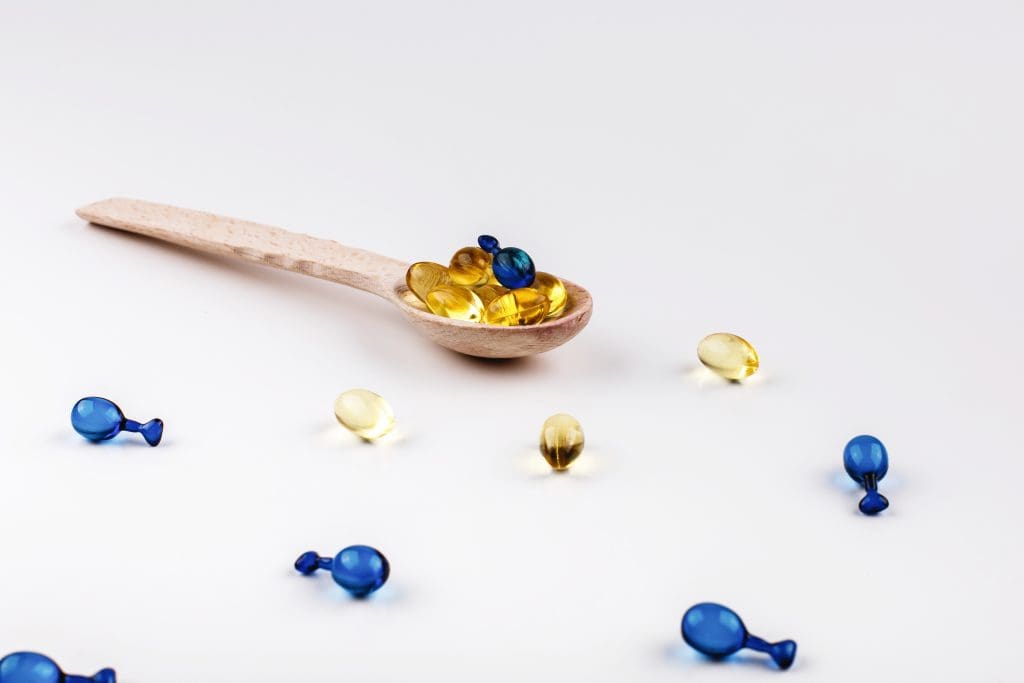Thalassemia is a genetic disorder that affects how the body makes hemoglobin. It’s important to manage vitamin intake carefully to avoid problems. Did you know that some vitamins can make thalassemia symptoms worse? What vitamins should be avoided with thalassemia? Patients need to know which vitamins to limit or avoid.
Managing thalassemia is not just about taking medicine. It also involves a detailed approach to diet and nutrition. Some vitamins that are good for most people can be risky for thalassemia patients. For example, too much iron can cause iron overload, a big challenge in managing thalassemia.
Knowing which vitamins to avoid and which supplements are safe can help thalassemia patients manage their condition better. This can improve their overall quality of life.

Key Takeaways
- Thalassemia patients need to be cautious with their vitamin intake.
- Certain vitamins can worsen thalassemia symptoms.
- A personalized dietary plan is essential for managing thalassemia.
- Understanding vitamin restrictions can help prevent complications.
- Consulting healthcare providers is key for safe vitamin supplementation.
Vitamins to Avoid in Thalassemia: An Overview
People with thalassemia need to be careful about the vitamins they take. Thalassemia is a genetic disorder that affects how red blood cells carry oxygen. It can cause anemia and iron overload, among other issues. It’s important for thalassemia patients to watch their vitamin intake to avoid making things worse.
Why Certain Vitamins Can Worsen Thalassemia Complications
Some vitamins can make thalassemia symptoms worse. For example, vitamins that help the body absorb iron can be a problem. This is because thalassemia patients often have too much iron from blood transfusions. Iron overload can harm the heart and liver. So, it’s key to know which vitamins to avoid.
Vitamin C is one vitamin to be careful with. It helps the body absorb iron, which can be bad for thalassemia patients. We’ll talk more about Vitamin C later.
“The management of thalassemia requires a complete approach, including careful thought about what we eat and supplements to prevent problems.”
A Hematologist
General Guidelines for Vitamin Consumption
Thalassemia patients should follow certain guidelines for vitamins. Here are some tips:
- Always talk to a doctor before starting any vitamins.
- Choose multivitamins without iron to avoid too much iron.
- Be careful with vitamins like Vitamin C that increase iron absorption.
- Check your vitamin levels often to make sure you’re not lacking or too full.
| Vitamin | Considerations for Thalassemia Patients | Recommended Action |
| Vitamin C | Increases iron absorption | Take it in small amounts; keep an eye on iron levels |
| Vitamin A | May interact with thalassemia medicines | Ask your doctor about safe amounts |
| Vitamin E | Has antioxidant properties; may have benefits and risks | Talk to your doctor about it |
By being informed and careful, thalassemia patients can make better choices about vitamins. This helps them manage their condition better.
Vitamins to Avoid in Thalassemia
Vitamin C: A Double-Edged Sword for Thalassemia Patients
Vitamin C is both helpful and harmful for thalassemia patients. It’s important for the immune system and making collagen. But, it can also increase iron absorption, which is bad for those with iron overload.
vitamin C and thalassemia
How Vitamin C Enhances Iron Absorption
Vitamin C makes it easier for the body to absorb iron. This is a problem for thalassemia patients, who often have too much iron. When they eat foods or take supplements with iron, vitamin C can make it worse.
“The increased iron absorption due to vitamin C can lead to a higher risk of iron-related complications in thalassemia patients,” says a study published in a reputable medical journal. So, thalassemia patients should watch how much vitamin C they take, even when eating foods high in iron or getting blood transfusions.
Safe Levels of Vitamin C for Different Thalassemia Types
The right amount of vitamin C varies by thalassemia type and iron levels. Thalassemia major patients should not take too much vitamin C. Thalassemia intermedia patients also need to be careful, but their limits might be different.
- Thalassemia major: Limit vitamin C supplements to 100-200 mg per day.
- Thalassemia intermedia: Monitor iron levels closely and adjust vitamin C intake according.
- Thalassemia minor: Generally, no strict limitations are required, but monitoring is advised.
Timing Vitamin C Intake to Minimize Iron Absorption
Thalassemia patients can control iron absorption by timing their vitamin C. Eating foods or taking supplements high in vitamin C between meals can help. This way, it won’t affect iron absorption as much.
Key considerations: Don’t take vitamin C supplements with meals that have a lot of iron. Try to eat vitamin C-rich foods or take supplements 2 hours before or after meals with iron.
By paying attention to vitamin C intake and its effect on iron, thalassemia patients can manage their condition better. This helps avoid problems caused by too much iron.
Iron Supplements: When They’re Absolutely Contraindicated
Iron supplements are good for some but risky for thalassemia patients. They can lead to too much iron. Thalassemia is a genetic disorder that affects hemoglobin production, causing anemia and other issues. Iron supplements might not be the best choice for thalassemia patients.
Why Iron Supplements Are Typically Harmful
Thalassemia patients often get too much iron from blood transfusions and absorption. Taking iron supplements can make things worse. It can cause heart problems, liver damage, and endocrine disorders. So, it’s best for thalassemia patients to avoid iron supplements unless a doctor says it’s okay.
Key Risks Associated with Iron Supplements in Thalassemia:
- Iron overload
- Cardiac complications
- Liver damage
- Endocrine disorders
Hidden Sources of Iron in Supplements
Iron is not just in iron supplements. It’s also in multivitamins, prenatal vitamins, and some herbal supplements. Thalassemia patients need to check the labels of their supplements for iron. This is important to avoid getting too much iron.
iron supplements and thalassemia risks
| Supplement Type | Potential Iron Content | Risk Level for Thalassemia Patients |
| Multivitamins | Often contains iron | High |
| Prenatal Vitamins | Typically contains iron | High |
| Herbal Supplements | May contain iron | Variable |
Exceptions for Iron-Deficient Thalassemia Minor Patients
Iron supplements are usually not good for thalassemia. But, there might be exceptions for thalassemia minor patients with iron deficiency. In these cases, a doctor might recommend iron supplements. It’s important to keep an eye on iron levels and adjust the supplements as needed to avoid too much iron.
Thalassemia patients should talk to their doctor before taking any supplements. This ensures they are managing their condition safely.
Vitamin A Considerations for Thalassemia Management
Vitamin A is important for many body functions like vision and immune health. But for those with thalassemia, managing vitamin A is key. This is because it can affect how well thalassemia medicines work and might cause toxicity.
Potential Interactions with Thalassemia Medications
Thalassemia patients get treatments like blood transfusions and chelation therapy. Vitamin A can interact with some thalassemia medicines. High amounts of vitamin A might not work well with chelating agents, leading to side effects. It’s important to watch these interactions to manage thalassemia safely.
vitamin A and thalassemia management
Recommended Limits for Vitamin A Intake
It’s important to know how much vitamin A is safe for thalassemia patients. The amount needed varies by age and sex. Patients should talk to their doctor to find out the right amount for them. Adults usually need 700-900 micrograms of vitamin A daily. But, thalassemia patients might need less based on their health and treatment.
Beta-Carotene vs. Preformed Vitamin A
Vitamin A comes in two types: preformed (from animals) and provitamin A (from plants). Beta-carotene turns into vitamin A in the body. This is safer for thalassemia patients because it lowers the risk of too much vitamin A. It’s best for them to eat foods rich in beta-carotene instead of taking supplements.
In summary, controlling vitamin A intake is key for thalassemia care. Knowing how it interacts with medicines, following intake guidelines, and choosing the right type of vitamin A helps. This way, thalassemia patients can avoid risks and get the most benefits from vitamin A.
Vitamin E Research in Thalassemia Treatment
Research on vitamin E in thalassemia treatment has shown promising results. Its antioxidant properties are key. We will explore the current knowledge on vitamin E supplementation in thalassemia patients.
Vitamin E and Thalassemia Research
Antioxidant Properties and Thalassemia
Vitamin E is a strong antioxidant. It can help reduce oxidative stress in thalassemia patients. Oxidative stress can cause cell damage and worsen disease symptoms.
Thalassemia patients often have low antioxidant levels, including vitamin E. Taking vitamin E supplements may help restore these levels and offer benefits.
Dosage Considerations and Possible Risks
While vitamin E may help thalassemia patients, the right dosage is key. High doses can interact with medications and cause side effects.
Thalassemia patients should talk to their healthcare provider before starting vitamin E supplements. The best dosage depends on the patient’s health, thalassemia severity, and other medications.
Current Clinical Evidence
Many studies have looked into vitamin E for thalassemia treatment. The evidence is promising but not yet complete. Most studies show vitamin E can improve antioxidant levels and reduce oxidative stress in thalassemia patients.
More research is needed to fully understand vitamin E’s benefits and risks in thalassemia treatment. But, the current evidence suggests it could be a helpful addition to managing thalassemia complications.
Vitamin D Status in Thalassemia Patients
Studies have found that many people with thalassemia don’t have enough vitamin D. This makes managing their health even harder. Low vitamin D levels can make their health problems worse.
Why Vitamin D Deficiency Is Common in Thalassemia
There are several reasons why thalassemia patients often lack vitamin D. These include:
- Not getting enough sun because of health advice or where they live
- Eating less vitamin D because of dietary limits
- Having trouble absorbing nutrients because of thalassemia
- Being anemic for a long time, which affects their nutrition
Knowing these reasons helps us find better ways to keep vitamin D levels up.
Safe Supplementation Approaches
Many thalassemia patients need to take vitamin D supplements. But, we must be careful:
- Always talk to a doctor to figure out the right amount
- Get your vitamin D checked often to avoid too much
- Think about your overall health, like your kidneys and liver
Safe supplementation can really help improve vitamin D levels and health.
Monitoring Vitamin D Levels
It’s very important to keep an eye on vitamin D levels in thalassemia patients. This means:
- Getting blood tests to check vitamin D levels
- Changing the amount of supplements based on test results
- Knowing how supplements might react with other medicines
Effective monitoring helps keep vitamin D levels healthy. This is key for managing thalassemia well.
Vitamin D and Thalassemia
B Vitamins and Folate Requirements in Thalassemia
Folate and B vitamins are key for thalassemia patients. They help make red blood cells and keep health up. We’ll look at what these vitamins mean for thalassemia care.
Folate’s Role in Red Blood Cell Production
Folate is vital for making red blood cells. This is extra important for thalassemia patients who often have anemia. Enough folate helps the body make enough red blood cells, even with thalassemia’s genetic issues.
Not enough folate can make anemia worse. This can cause tiredness, weakness, and other thalassemia problems. So, keeping folate levels up is key for managing the condition.
B12, B6, and Other B Vitamins: Safety Profile
B vitamins like B12 and B6 are also important for thalassemia patients. Vitamin B12 is key for nerve health and making red blood cells. Without enough, anemia and nerve issues can happen.
Vitamin B6 helps with energy and nerve health. B vitamins are safe in the right amounts. But, it’s important to talk to a doctor about the right supplements.
B vitamins and folate for thalassemia management
Recommended Dosages for Thalassemia Patients
The right amount of B vitamins, like folate, depends on many things. Thalassemia patients need to work with their doctors to find the best supplements.
Adults usually need about 400 micrograms of folate a day. But, thalassemia patients might need more or less. The same goes for vitamins B12 and B6, with daily needs of 2.4 micrograms and 1.3 milligrams, respectively.
Multivitamins and Thalassemia: What to Look For
For those with thalassemia, picking the right multivitamin is key. It’s important to manage thalassemia with care, including dietary supplements. This helps avoid any complications.
Iron-Free Formulations
Thalassemia patients need to watch out for iron in multivitamins. Too much iron is a big risk, thanks to blood transfusions and iron absorption. Iron-free multivitamins are a must to stop iron buildup.
Always check the multivitamin label for iron. Some might have hidden iron sources like ferrous fumarate or ferric oxide. It’s best to choose products that say they are iron-free.
Ingredients to Avoid in Commercial Multivitamins
Thalassemia patients should also steer clear of certain ingredients in multivitamins. These include some minerals and vitamins that might not be safe for them.
- High doses of vitamin C, which can enhance iron absorption
- Vitamin A in the form of retinol, which can accumulate to toxic levels due to frequent transfusions
- Certain fillers and dyes that may cause allergic reactions or interact with medications
Specialized Formulations for Thalassemia
Some brands make multivitamins just for thalassemia patients. These specialized formulations meet the unique needs of those with thalassemia.
| Feature | Standard Multivitamin | Thalassemia-Specific Multivitamin |
| Iron Content | Often contains iron | Iron-free |
| Vitamin C Content | May contain high doses | Lower doses to minimize iron absorption |
| Vitamin A Form | May contain retinol | Often uses beta-carotene instead |
Thalassemia patients should look for multivitamins that are iron-free and made for their health needs. Talking to a healthcare provider is key to finding the right multivitamin.
Reading Supplement Labels: A Guide for Thalassemia Patients
It’s important for thalassemia patients to understand supplement labels. This helps avoid harmful ingredients. Knowing what’s in your supplements is key to managing thalassemia.
Identifying Hidden Iron Sources
Thalassemia patients need to watch out for iron overload. Many supplements have hidden iron that can worsen this condition. Look for:
- Iron or ferrous compounds (e.g., ferrous sulfate, ferrous gluconate)
- Vitamin C, which can enhance iron absorption
- Other ingredients that may contain iron, such as certain forms of herbal extracts
Always check the ingredient list carefully, as iron can be listed under various names.
Understanding Percent Daily Values
Percent Daily Values (%DV) on labels show the nutrient amount. For thalassemia patients, it’s key to know:
- %DV is based on average adult needs
- Individual requirements may vary based on the specific type of thalassemia and other health factors
- Some nutrients, like iron, should be limited or avoided altogether
We recommend consulting with a healthcare provider to determine the appropriate %DV for your specific needs.
Recognizing Potentially Harmful Additives
Some supplements have additives that can harm thalassemia patients. Be aware of:
- Fillers and binders that may cause allergic reactions or interact with medications
- Artificial colors or flavors that can be problematic for some individuals
- Other ingredients that may interact with thalassemia medications or worsen symptoms
By being vigilant and informed, thalassemia patients can safely navigate the complex world of supplements and make choices that support their overall health.
Age-Specific Vitamin Considerations in Thalassemia
As thalassemia patients grow and age, their vitamin needs change. It’s important to understand these changes to give the best care.
Pediatric Thalassemia and Vitamin Needs
Children with thalassemia need different vitamins than adults. Their growing bodies need nutrients for growth and to manage the condition.
- Folate: It’s key for making red blood cells, so supplements are often needed.
- Vitamin D: It’s vital for strong bones, which is important for kids getting many blood transfusions.
Adolescents with Thalassemia: Growth and Development
Adolescents with thalassemia face special challenges during puberty. They need more nutrients for growth.
- It’s important to check vitamin levels often and adjust supplements as needed.
- Make sure they get enough calcium and vitamin D for their bones.
Older Adults: Managing Comorbidities and Vitamin Interactions
Older adults with thalassemia often have other health issues that make vitamin management harder.
- It’s important to think about how vitamins interact with their medications.
- Watch for signs of vitamin deficiencies or too much of a vitamin.
Healthcare providers can create better treatment plans by knowing the specific vitamin needs of thalassemia patients at different ages.
Beneficial Supplements for Thalassemia Support
Managing thalassemia can be tough, but some supplements can help. These supplements can support patients beyond just traditional treatments. They help meet nutritional needs and tackle thalassemia-related issues.
Zinc and Copper Balance
Keeping zinc and copper levels in check is key for thalassemia patients. Zinc supplementation can help with some issues, but watch out for copper levels. Too much zinc can cause copper deficiency, which is bad for red blood cell production.
It’s important for thalassemia patients to talk to their doctors about zinc and copper. Regular checks can prevent problems and make sure supplements are safe and helpful.
L-Carnitine and Thalassemia
L-carnitine might help thalassemia patients feel less tired. It’s important for energy production. It might also cut down on the need for blood transfusions by improving iron use.
But, always check with a doctor before taking L-carnitine. It could interact with other medicines or affect different thalassemia types differently.
Antioxidants That May Help Manage Oxidative Stress
Oxidative stress is a big worry for thalassemia patients. It can damage tissues and make things worse. Antioxidants like vitamins E and C can help. They fight off free radicals that harm cells.
But, it’s all about balance with antioxidants. Too much can be bad. So, thalassemia patients should talk to their doctors to find the right amount for them.
Creating a Balanced Nutrition Plan for Thalassemia
For those with thalassemia, a well-thought-out nutrition plan is key to staying healthy. A balanced diet can help manage the condition, reduce complications, and boost overall health.
Foods to Emphasize and Limit
A good diet for thalassemia patients means focusing on certain foods and avoiding others. Foods high in antioxidants, like fruits and veggies, are good choices. It’s best to eat a variety of colorful fruits and veggies.
Limit foods that can lead to iron overload or interact with medications. For example, foods high in vitamin C can increase iron absorption. This might not be good for thalassemia patients who already have high iron levels from blood transfusions.
| Food Group | Recommended Foods | Foods to Limit |
| Fruits | Berries, citrus fruits (in moderation) | Excessive consumption of citrus fruits high in vitamin C |
| Vegetables | Leafy greens, broccoli, bell peppers | Vegetables high in iron (like spinach) |
| Grains | Whole grains like brown rice, quinoa | Iron-fortified cereals |
Meal Timing and Vitamin/Mineral Absorption
When you eat can affect how well your body absorbs vitamins and minerals. For instance, eating foods high in vitamin C with meals can help your body absorb more iron. We suggest thinking about this when planning your meals.
Also, some minerals like calcium can block iron absorption. So, it’s a good idea to eat iron-rich foods and calcium-rich foods at different times.
Hydration and Its Impact on Thalassemia Management
Drinking enough water is very important for thalassemia patients. It helps keep blood flowing well and prevents problems. We recommend drinking lots of water all day long.
Some drinks, like those with a lot of caffeine, can make you lose water. Drinking too much of these can lead to dehydration.
Conclusion: Developing a Personalized Vitamin Strategy for Thalassemia
Managing thalassemia needs a detailed plan, including a personalized vitamin strategy. We’ve talked about the importance of avoiding certain vitamins. For example, too much iron and vitamin C can make thalassemia worse.
A customized vitamin plan can prevent bad interactions. It makes sure thalassemia patients get the right nutrients. It’s best to talk to healthcare experts to make a plan that fits your needs and health.
Knowing which vitamins to avoid and using safe ones can help manage thalassemia. A good vitamin plan, along with a healthy diet and regular doctor visits, is key to managing thalassemia well.
Creating a personalized vitamin strategy requires looking at many factors. These include the type and severity of thalassemia, your age, and overall health. Working with healthcare providers helps thalassemia patients make a plan that improves their well-being and quality of life.
FAQ
What vitamins should be avoided in thalassemia?
Thalassemia patients should avoid vitamins that increase iron absorption. This includes too much vitamin C. They should also limit vitamin A to avoid drug interactions.
Can thalassemia patients take multivitamins?
Yes, but they should pick iron-free multivitamins. This helps avoid iron overload. Always check the labels for hidden iron sources.
Is vitamin D safe for thalassemia patients?
Vitamin D is safe when used correctly. It’s important to keep an eye on vitamin D levels. This prevents toxicity.
How does vitamin C affect thalassemia?
Vitamin C can increase iron absorption. This is bad for thalassemia patients with too much iron. So, it’s key to control vitamin C intake.
Are iron supplements safe for thalassemia patients?
Iron supplements are not safe for most thalassemia patients. They are only okay if there’s iron deficiency. Always get them from a doctor.
What is the role of folate in thalassemia management?
Folate is vital for making red blood cells. It’s important for thalassemia patients. But, only take it as advised by a doctor.
Can thalassemia patients take vitamin E supplements?
Vitamin E supplements can be good for thalassemia patients. They have antioxidant benefits. But, always talk to a doctor about dosage and risks.
How can thalassemia patients create a balanced nutrition plan?
Focus on foods rich in nutrients. Avoid foods that worsen the condition. Proper meal timing and staying hydrated are also key.
Are there any beneficial supplements for thalassemia support?
Yes, supplements like zinc, L-carnitine, and antioxidants can help. They manage oxidative stress and support health. But, always get advice from a doctor.
Why is vitamin management important for thalassemia patients?
Managing vitamins is vital to avoid problems. It ensures thalassemia patients get the nutrients they need for good health.










